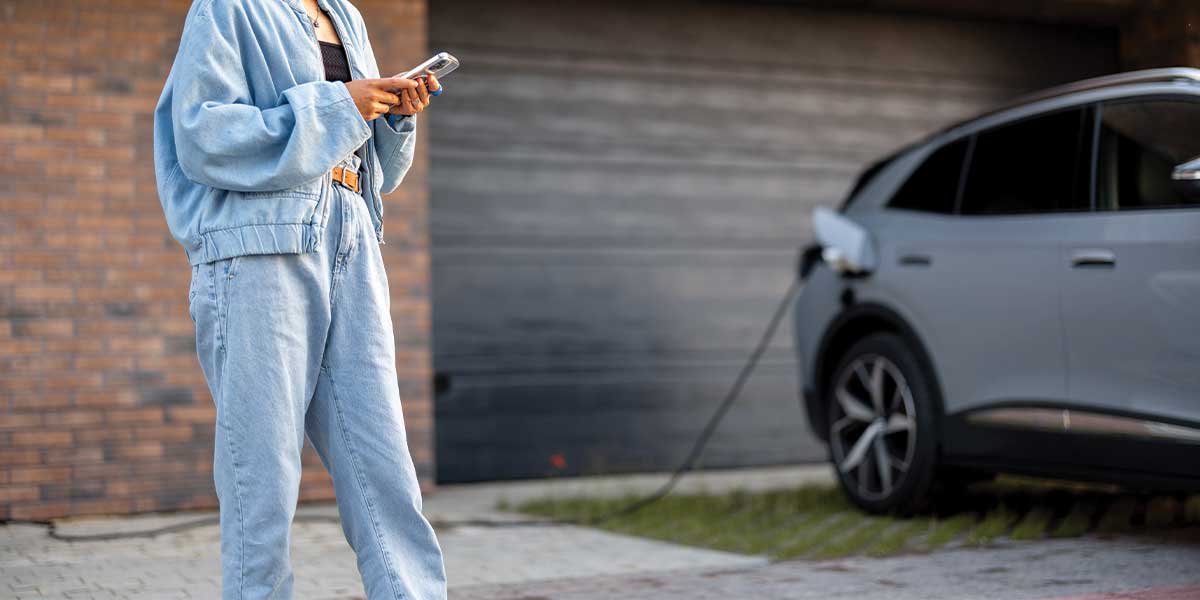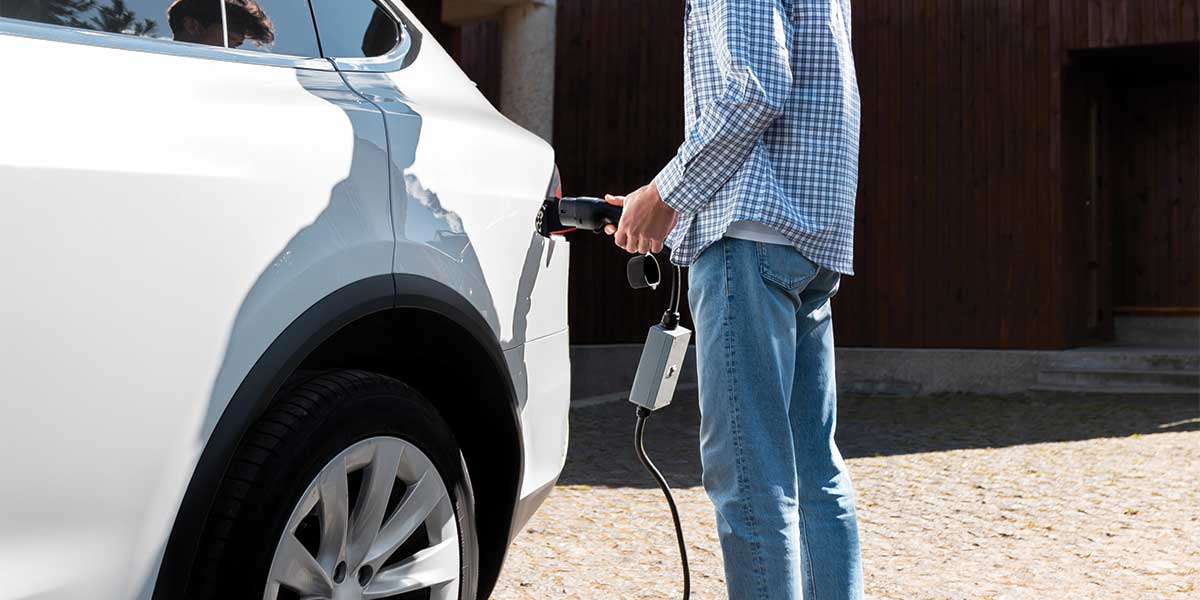Electric vehicles (EVs) are rapidly transforming the way we think about transportation. Whether you’re driving a Tesla, a Nissan Leaf, or another EV model, one thing remains consistent: charging your vehicle quickly and efficiently is essential. While public charging stations are helpful, nothing beats the convenience of installing an electric car charger in your own home.
At Expert Electric, we specialize in providing safe, professional, and code-compliant installations for homeowners throughout BC. This guide will walk you through everything you need to know about installing an electric car charger in your home, from eligibility and preparation to installation steps, rebates, and ongoing benefits.
Why Upgrade to a Level 2 Charger?
Most EVs come with a Level 1 charger that plugs into a standard 120-volt household outlet. While functional, these chargers are slow, sometimes taking more than 24 hours to fully charge your car.
A Level 2 charger, however, operates on a dedicated 240-volt circuit. This higher capacity delivers significantly faster charging times, meaning you can recharge your battery overnight or even within a few hours.
Benefits of Level 2 charging include:
-
Faster charging – Get back on the road in hours instead of days.
-
Improved battery performance – Many EV manufacturers recommend Level 2 chargers for long-term battery health.
-
Convenience at home – Your vehicle is always ready for your next trip.
-
Future-proofing – With EV adoption rising, home charging increases your home’s value and efficiency.
The Importance of Professional Installation
While it may seem simple to mount a charger and plug it in, installing an electric car charger involves more than just plugging into an outlet. It requires:
-
Assessing your home’s electrical capacity.
-
Ensuring space on your electrical panel.
-
Obtaining the correct permits.
-
Meeting local safety codes and regulations.
At Expert Electric, we handle all of these details. Our electricians are certified, safety-focused, and experienced with EV infrastructure. We provide a seamless process from start to finish, ensuring your charger is reliable, efficient, and safe.
Step-by-Step Guide to Installing an Electric Car Charger in Your Home
Here’s a detailed breakdown of what’s involved in the installation process:
1. Determine Your Home’s Eligibility
Before installation, you’ll need to confirm your home is suitable for an EV charger. In BC, this involves contacting your municipality or Technical Safety BC to verify eligibility. For additional guidance on preparing your home for EV charging, you can also review BC Hydro’s guide to charging at home.
2. Check Your Electrical Service and Panel
Your home must have enough electrical capacity to support a Level 2 charger. Most chargers require a dedicated 240-volt circuit. If your panel lacks space or capacity, an electrical service upgrade may be necessary.
Our Expert Electric team can evaluate your home’s current system and recommend upgrades if needed.
3. Choose the Right Charger
Not all EV chargers are created equal. Selecting a model compatible with your vehicle is critical. You’ll also want to choose a charger that qualifies for available rebates. Popular brands include ChargePoint, FLO, and JuiceBox.
4. Hire a Certified Electrician
Once you’ve selected a charger, the next step is installation. Only a licensed electrician should install your charger. We recommend hiring professionals certified through the Electric Vehicle Infrastructure Training Program (EVITP) to ensure safe and effective results.
At Expert Electric, our electricians are fully trained and certified, ensuring compliance with all local electrical codes.
5. Obtain Permits and Complete Installation
Permits must be obtained before installation begins. Our team handles the permitting process, ensuring that everything is filed correctly with your municipality.
During installation, we:
-
Install a dedicated circuit breaker.
-
Mount the charging station.
-
Connect it to your panel.
-
Test the system for safety and performance.
6. Schedule Inspection
After installation, your municipality or Technical Safety BC must inspect the charger. This ensures your setup complies with all regulations and safety standards.
7. Apply for Rebates
In BC, you may be eligible for rebates covering up to 50% of the cost of your charger and installation. These incentives help offset upfront expenses and make EV charging more accessible.

Benefits of Installing an Electric Car Charger at Home
Installing a home EV charger isn’t just about convenience, it’s an investment in your future. Key benefits include:
-
✅ Cost savings – Charging at home is cheaper than relying on public stations.
-
✅ Energy efficiency – Take advantage of off-peak electricity rates.
-
✅ Eco-friendly driving – Reduce your carbon footprint with renewable energy charging.
-
✅ Home value boost – Homes with EV chargers are increasingly attractive to buyers.
Common Mistakes to Avoid
When installing an electric car charger, avoid these pitfalls:
- DIY installation – Without proper training, you risk fire hazards and code violations.
- Undersized panels – Not checking your electrical service can lead to system overloads.
- Skipping permits – Unpermitted work can cause legal and insurance issues.
- Choosing the wrong charger – Not all chargers work with every EV model.
FAQs About Installing an Electric Car Charger
Q1: How long does it take to charge an EV at home?
A Level 2 charger can typically charge most EVs in 4–8 hours, compared to over 24 hours with a Level 1 charger.
Q2: Can I install an EV charger in a condo or apartment?
Yes, but the process differs significantly. Strata or building approval is required, and additional infrastructure upgrades may be needed. This guide focuses on single-family homes and townhomes.
Q3: Do I need to upgrade my electrical panel?
Not always. If your panel has enough capacity and breaker space, no upgrade is necessary. If not, our electricians can handle the upgrade.
Q4: How much does installation cost?
Costs vary depending on your home’s electrical system and the charger you choose. Most homeowners spend $800–$2,000, before rebates.
Q5: Are rebates available in BC?
Yes. You may be eligible for rebates that cover up to 50% of the purchase and installation cost. Our team can help guide you through the application.
Final Thought: Trust Expert Electric for Your EV Charger Installation
Making the switch to electric is a smart move, and installing an electric car charger in your home ensures you’re always ready for the road. With Expert Electric, you get more than just an installation, you get peace of mind knowing your charger is installed by certified professionals who prioritize safety, reliability, and efficiency.
Whether you’re purchasing your first EV or upgrading your charging setup, our team is here to help every step of the way.
Contact Expert Electric
📍 Serving BC homeowners with reliable residential electrical solutions.
📞 Call Us Today: 604-681-8338
📧 Email: info@expertelectric.ca
Let’s make your EV charging experience seamless, safe, and convenient.


